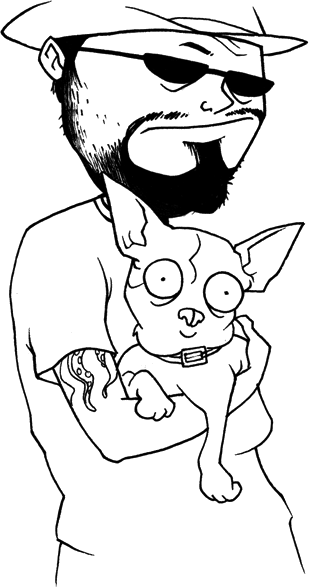Did Assignment Zero Work?
As powazek.com readers know, I participated in Assignment Zero’s Interview Week over the last few months. Jeff Howe, who coined the word “crowdsourcing,” has a piece in Wired today with the provocative headline: Did Assignment Zero Fail? A Look Back, and Lessons Learned.
It’s a frank assessment with many insights that should be required reading for anyone looking to tap the power of the community. Among the usual lessons learned (design and technology matter, beware the ghost town, managing people is hard), are these standouts.
The choice of subject was a decision we would come to regret. The topic of crowdsourcing was too nebulous – too new – to gain immediate traction. One thing any volunteer project must inspire – be it citizen journalism, an open-source programming project or simply an AIDS drive – is passion. Using the crowd to investigate crowdsourcing inspired, by contrast, confusion.
This is key. But it’s not just about passion, it’s about understandability. Crowdsourcing was not just too new, it was too meta. It’s like asking comedians to explain funny – even when they’re doing it, they don’t always know why.
“What we learned,” says Rosen, “is that you have to be waaaay clearer in what you ask contributors to do. Just because they show up once doesn’t mean they’ll show up over and over. You have to engage them right away.”
Start with clear, simple tasks. This isn’t because the crowd can’t handle complicated ones – they can – it’s because they haven’t decided if it’s worth doing them for you yet. You have to earn that. And you earn it by letting them do something small and simple, have a good experience, and then move up to the next, more complicated task.
“What we really needed were people who understood online organizing,” says David Cohn, an Assignment Zero editor. “But many of the editors just didn’t have much experience with the internet.”
Bingo. Editors trained by school or experience are skilled in a closed system of hierarchical control. An open participation process can be difficult for them to adjust to. People won’t do what you say because you just told them to. You have to inspire them to want to participate. (I will say that the editors I dealt with personally in AZ did this well.)
This certainly reinforced one of the lessons that was learned from reporting on various crowdsourcing projects: Essentially, it’s all about the community.
It always is.
At about the same time the Assignment Zero team made the decision to shift the goal from producing scores of feature stories to producing scores of interviews. Asking contributors to “write the story on open-source car design” had all the appeal of asking people to rewrite their college term papers. Asking them to talk to someone they admire and respect was met with a far warmer response.
This is a major insight. Crowds are very good sources. People are happy to go out and gather viewpoints, or post their own, because it’s social. But editing all that material together to create a magazine-quality feature is a different act – less social, more craft. So let editors do that – they’re really good at it – and give the crowd tasks that are, frankly, more fun to do.
What the interviews make clear is that contributors volunteered to tackle subjects about which they were passionate and knowledgeable. In this they held a considerable advantage over professionals, who often must complete interviews with little time (or inclination) for advance research.
Bingo! Crowdsourcing isn’t about “using cheap labor” or “letting the amateurs have a shot” – it’s about finding the right person for the job. At its best, crowdsourcing is about expanding the walls of the newsroom to the internet, giving an opportunity to people with real experience to share their expertise. This is a point that’s often lost on people who are just looking to make a quick buck on Web 2.0.
And one model that doesn’t work is attempting to use crowdsourcing simply as a cost-saving measure. Communities must be cultivated, respected and deftly managed if they are to come together to create economic value. This takes talented staff, and a set of skills not taught in journalism or business schools.
Amen.
So did Assignment Zero Work? I say: Yes. A bunch of people, myself included, were published on Wired.com. Of course it didn’t go perfectly to plan – community projects rarely do. But the AZ editors showed they had what it takes when they reacted to the community needs, narrowed scope, changed the technology, and wound up making something great.
Just imagine what we’ll all make together next.
